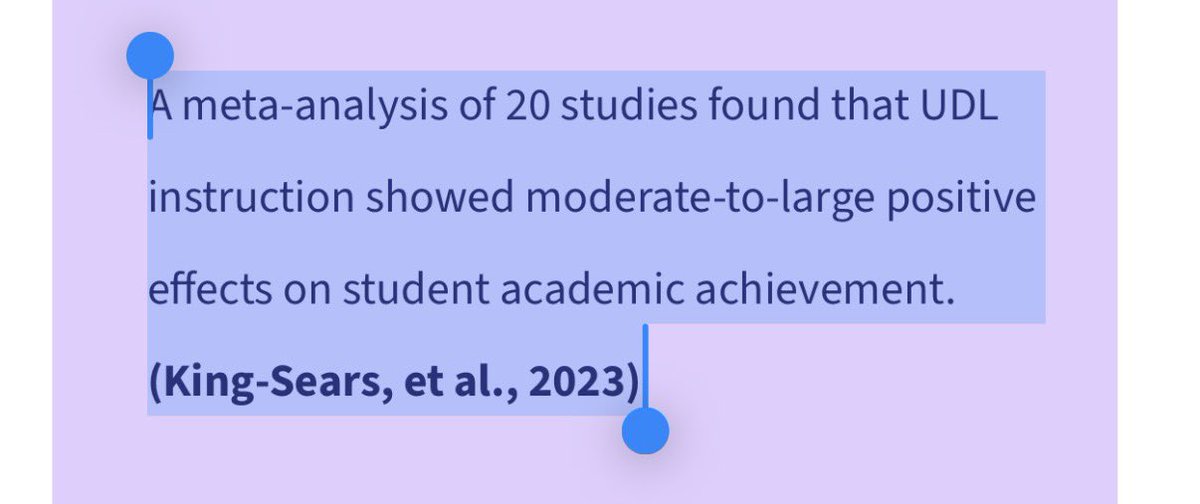
7th grade World Studies teacher who uses the science of learning to help students understand the world. Read more here: https://t.co/BIXIc5KzCP
How to get URL link on X (Twitter) App


https://x.com/SoLInTheWild/status/2006562770066473201🚩 CAST summarizes King-Sears et al. (2023) by saying UDL shows “moderate-to-large positive effects” on student achievement. That sounds decisive but a closer look at the meta-analysis reveals several important red flags.




 Elaboration theory, developed by Reigeluth, is built on a simple idea: start with a broad, meaningful overview of the content, called the epitome, then elaborate by adding more detail, depth, and complexity over time. In other words, we need to zoom out before we can zoom in.
Elaboration theory, developed by Reigeluth, is built on a simple idea: start with a broad, meaningful overview of the content, called the epitome, then elaborate by adding more detail, depth, and complexity over time. In other words, we need to zoom out before we can zoom in.

 One of these insights I recently came across: meaningful forgetting vs forgetting through interference depends on how well the new learning was initially assimilated. I’ve seen it play out so many times this way—Student A retains a “residue of the new meaning”, Student B doesn’t.
One of these insights I recently came across: meaningful forgetting vs forgetting through interference depends on how well the new learning was initially assimilated. I’ve seen it play out so many times this way—Student A retains a “residue of the new meaning”, Student B doesn’t.
https://twitter.com/iste/status/1239611145599713281“Online learning should never be an excuse to assign busy work, but rather to address clear engaging learning objectives.”